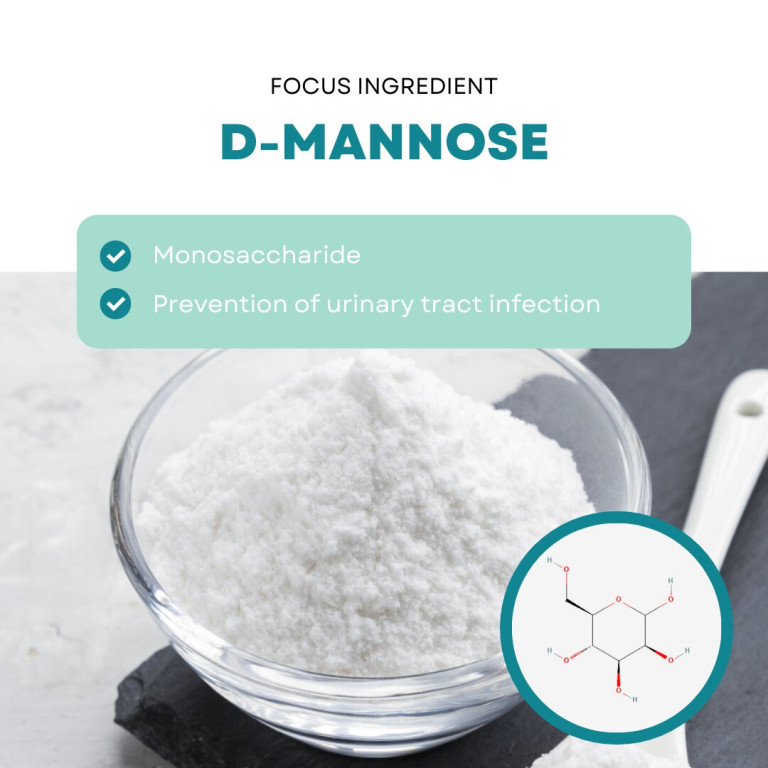
FOCUS INGREDIENT : D-MANNOSE
D-Mannose: a simple sugar with promising properties
D-mannose is a natural simple sugar found in certain fruits, such as cranberries and bilberries. It can also be produced by fermentation or oxidation of mannitol. Increasingly popular, it is now found as the main ingredient in many dietary supplements. But what are its benefits and how does it affect the body?
Properties and actions of D-mannose
D-mannose is distinguished by its ability to bind to fimbriae, hair-like structures present on the surface of certain bacteria, including Escherichia coli (E. coli). This bacterium is responsible for over 80% of uncomplicated urinary tract infections. By attaching to the fimbriae, D-mannose prevents E. coli from attaching to the walls of the bladder and urinary tract, thus facilitating its elimination through the urine.
D-mannose and urinary tract infections
D-mannose has made a name for itself in the field of urinary tract infections. Numerous clinical studies have demonstrated its efficacy in the prevention and treatment of recurrent urinary tract infections. D-mannose is a natural and effective alternative to antibiotics, often prescribed for this type of infection.
The recommended dosage of D-mannose generally ranges from 1 to 3 grams a day, to be taken in divided doses over several days.
D-mannose and immunity
Some studies suggest that D-mannose may also play a role in boosting the immune system. By stimulating the production of certain immune cells, it could help fight infection and prevent disease.
D-mannose and digestive well-being
D-mannose may also have beneficial effects on digestive health. By promoting the growth of certain probiotic bacteria, it could contribute to the balance of intestinal flora and digestion.

